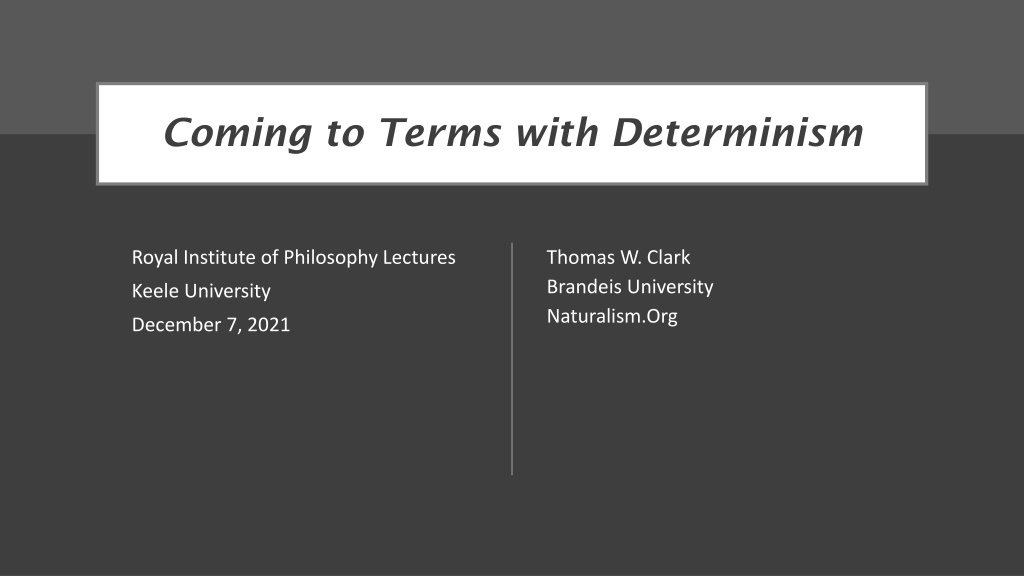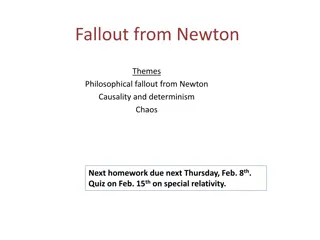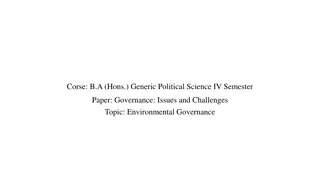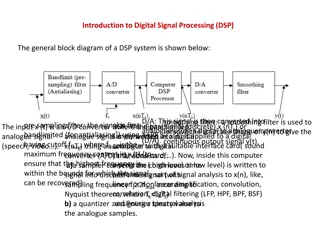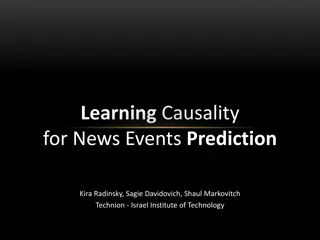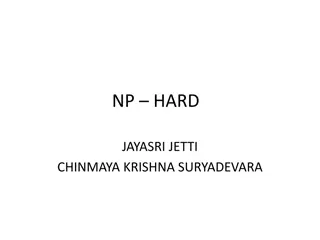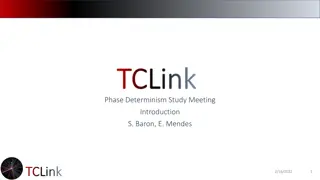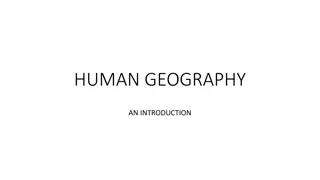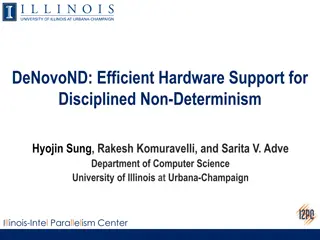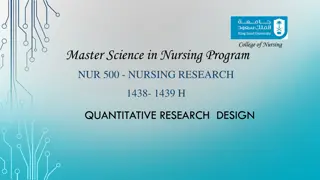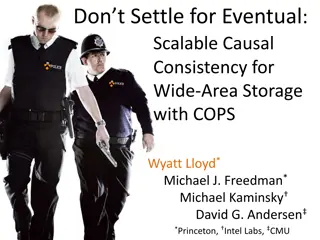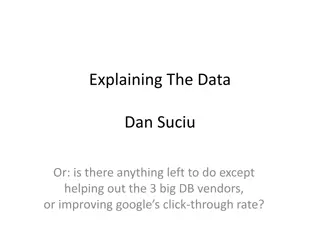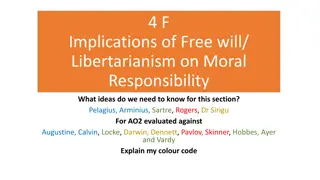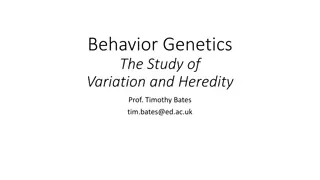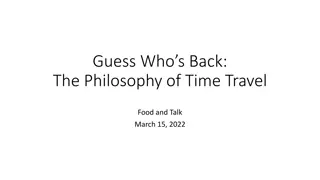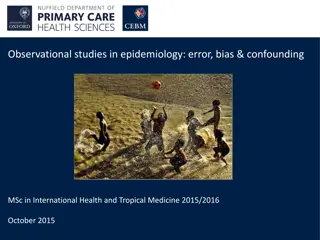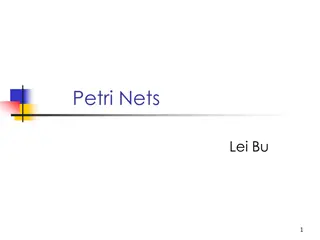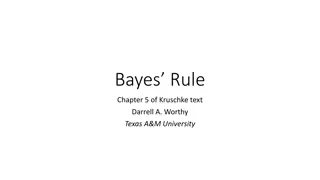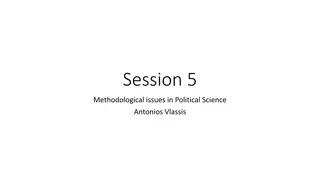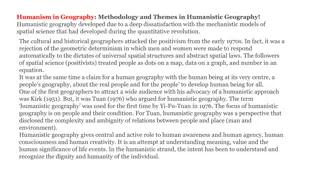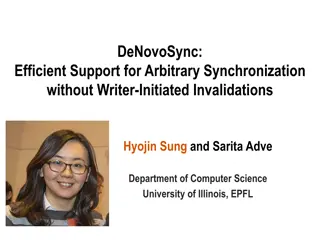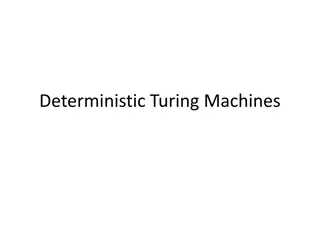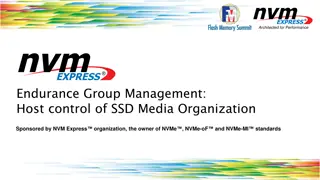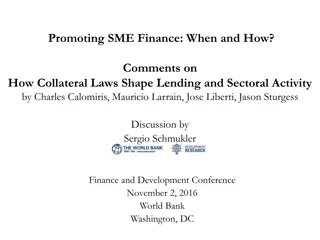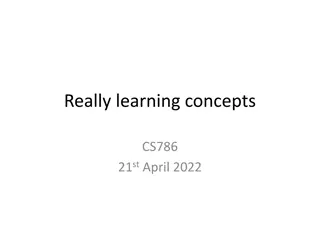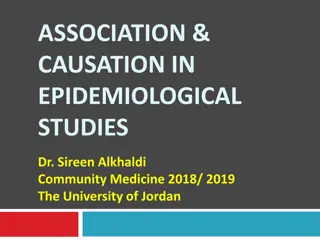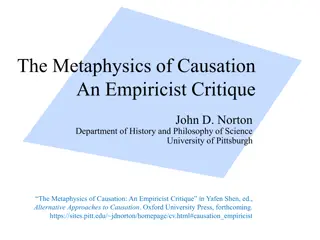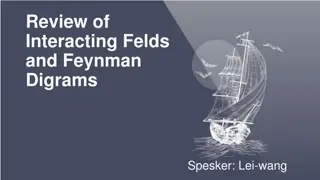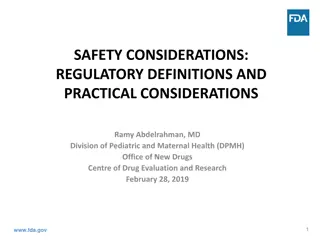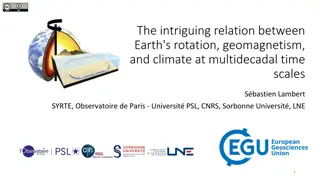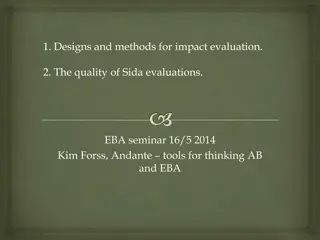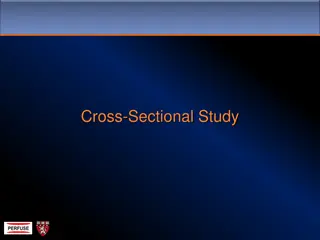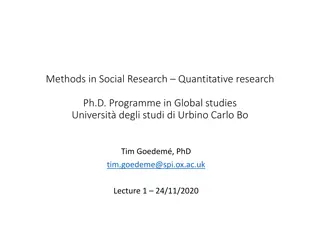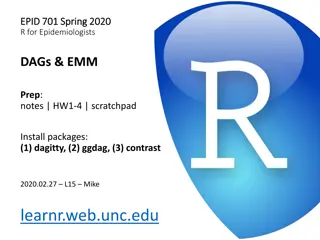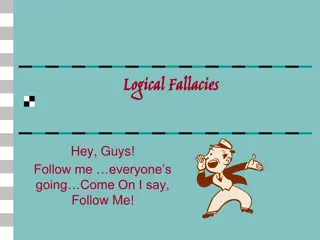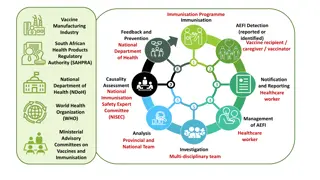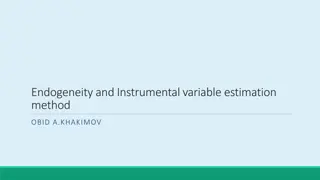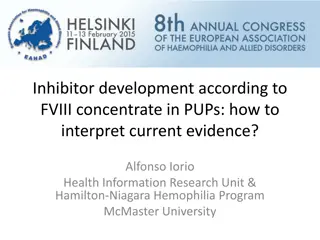Exploring Determinism: Insights on Free Will and Causality
Delve into the philosophical discourse on determinism with a critical examination of free will, agency, and the implications of causality. Discover how leading thinkers challenge the conventional notions of choice and explore the complexities of human behavior in light of scientific revelations.
Download Presentation

Please find below an Image/Link to download the presentation.
The content on the website is provided AS IS for your information and personal use only. It may not be sold, licensed, or shared on other websites without obtaining consent from the author. Download presentation by click this link. If you encounter any issues during the download, it is possible that the publisher has removed the file from their server.
E N D
Presentation Transcript
Coming to Terms with Determinism Royal Institute of Philosophy Lectures Thomas W. Clark Brandeis University Naturalism.Org Keele University December 7, 2021
Objective: defang determinism No good reason to suppose we are causal exceptions to nature No rational reason to want to be causal exceptions Determinism affords us compassion and control Another step in naturalizing ourselves in light of science
Roadmap Free will under attack! Two concepts of free will and agency Determinism: could you have done otherwise? Pragmatic determinism: its practical and ethical advantages Misperceptions of determinism The disutility of indeterminism (libertarianism) Downplaying determinism (compatibilism) Pitfalls, objections, and limitations
Free will under attack! Humanity is fortunately deceived on the free will issue, and this seems to be a condition of civilized morality and personal sense of value. Saul Smilansky, Free Will and Illusion, 2000
The Guardian: The clockwork universe: is free will an illusion? A puppet is free as long as he loves his strings. Sam Harris A growing chorus of scientists and philosophers argue that free will does not exist. Could they be right?
You may feel like you've made choices, but in reality your decision to read this piece, and whether to have eggs or pancakes, was determined long before you were aware of it perhaps even before you woke up today. - Jerry Coyne, biologist Sapolsky forthcoming: Determined: A Science of Life Without Free Will Yet the sobering side of these revelations, [Robert Sapolsky] believes, is that our behavior is largely determined with little or no room for free will by all of the psychological, physiological, and evolutionary forces that science is now decoding. OMG! We re undeceived about free will.
Determinism Determinism defined: one possible future given the current situation and laws of nature.The current situation is fully traceable to antecedent circumstances. Sean Carroll: Within its domain of applicability, the Core Theory is what we might label causally comprehensive There is a specific equation that unambiguously predicts how it will evolve over time. This equation is sufficient to describe everything human beings generally do... There are no ambiguities or loose ends. The fact that brains are big, complex things is irrelevant. The Core Theory makes specific predictions for how any particular brain will behave... Consciousness and the laws of physics, Journal of Consciousness Studies, 2021. (emphasis added)
What do we mean by free will? Standard: What I do is up to me: credit, blame, moral responsibility But who am I, in what sort of world: how much blame? Libertarian, contra-causal free will: freedom is incompatible with determinism. Strong origination, deep credit and blame. Compatibilist free will: our freedoms are compatible with determinism. Proximate origination. Free will skeptics: we lack the control required for basic desert What s under attack is clearly contra-causal freedom:strong credit & blame is threatened by determinism. Majority of philosophers (~ 60%) are compatibilists. Regular folks often have contra-causal intuitions. Determinism viewed with distrust, distaste.
Free will: could you have done otherwise? Unconditional ability to do otherwise: In an actual situation, you could have done otherwise in a way that s up to you - an ability incompatible with determinism: contra-causal freedom. Conditional ability to do otherwise: Had the conditions been different, you might have done otherwise - an ability compatible with determinism: compatibilist freedom. If determinism is true, you don t have the unconditional capacity - you couldn t be doing otherwise right now. Would this be a problem? Why?
No unconditional ability to do otherwise: when making the tea, it certainly seemed to me that I could have made coffee instead... Given the precise state of the universe at the time, which includes the state of my body and brain, all of which have prior causes stretching all the way back to my origin as a tea-drinking semi- Englishman and beyond, I could not have done otherwise... That is, we don t have contra-causal free will.
But we do have the conditional ability to do otherwise: The counterfactual aspect of the experience of volition is particularly important for its future-oriented function. The feeling that I could have done differently does not mean I actually could have done differently [in an actual situation]. Rather, the phenomenology of alternative possibilities is useful because in a future similar, but not identical, situation I might indeed do differently. We are behaviorally flexible. Why would anyone want the unconditional ability - contra-causal free will? What s the problem with determinism?
Is determinism true? Naturalistic starting points: Epistemology ( way of knowing ): empirical, scientific, and fallibilist not faith, tradition, intuition, authority, etc. (Jonathan Rauch: The Constitution of Knowledge) Worldview: naturalism - natural world as shown by science, nothing supernatural. (www.naturalism.org) Metaphysics: we can be agnostic about physicalism, idealism, dualism, panpsychism, etc. when thinking about causation Causal and explanatory relations exist as shown by science, whatever our metaphysics (Judea Pearl, The Book of Why) Reliable cause-effect relations hold in human behavior: folk psychology and as described by science. Inclusive naturalism: we aren t causal exceptions to nature.
Pragmatic determinism Quantum indeterminacy: no universal, implacable determinism Pragmatic determinism: for all practical purposes, it s rational to assume causal explanatory relations hold in human development and behavior. Imperfect knowledge, Linear, multi-factorial, probabilistic. Physical determinants micro-physical, chemical, biological, neural Motivational determinants - supervene on neural Reasons-based determinants person-level beliefs, deliberations, and decisions help to determine action (reasons as quasi-causes) Indeterminism can t afford you more control or responsibility than you have under determinism. If indeterminism plays a role, you might have done otherwise, but not in a way that gives you more control or responsibility than under determinism. So for all practical purposes we should be determinists: assume causal explanatory relations hold.
Compassion: the mitigation response Determinism situates the individual within a wider causal context: historical and situational Causal responsibility for action is distributed outside the individual You could not have been or done otherwise: libertarian, burn-in-hell blame does not apply Punitive reactive attitudes premised on contra-causal agency are mitigated: Tout comprendre, c est tout pardonnez Compassion, sympathy, forbearance for others Self-compassion Anecdotal reports and survey findings support mitigation response NB: the agent survives as a locus of control and forward-looking accountability
The mitigation response Our character and actions are conditioned by factors that we do not control our genetic make-up, our upbringing, our physical environment. Given that we are components of a natural world, does it make sense to be retributively angry when people act badly? - Derk Pereboom in Wrongdoing & The Moral Emotions.
The mitigation response this doctrine contributes to the social life by teaching us to hate no one, to disesteem no one, to mock no one, to be angry at no one, to envy no one. every action determined by heredity, constitution, example of others or teaching of others .This view should teach one profound humility, one deserves no credit for anything nor ought one to blame others. Spinoza, Ethics II, Proposition 49, Discussion 490 (quoted by Pereboom in Wrongdoing & The Moral Emotions) - Charles Darwin, Notebooks. (quoted by Robert Wright in The Moral Animal)
The mitigation response With a broader view of the causes of her wrongdoing we relate her faulty attitudes to other causes that interest us morally. In particular, causes we view as hardships may soften our reactions, rendering us more compassionate toward the wrongdoer. - Erin Kelly, The Limits of Blame, p. 112
Why it matters: desert & punishment it seems desert is at base an emotional response - a reactive attitude and blame is the response of disapproval Thus criminal punishment might be a fitting expression of the basic disapproval generated when an offender commits a serious criminal offense. - Hirstein, Sifferd, & Fagan, Responsible Brains, p. 203 Proposal: determinism, via the mitigation response, can condition our idea of what people deserve: no basic desert.
Mitigating blame: addiction To help addicts, look beyond the fiction of free will The Scientist, 1998 Determinism and destigmatization: mitigating blame for addiction Neuroethics, 2021
Control: applications of pragmatic determinism Understanding the causal story enhances practical control Behavioral technology, e.g., Nudge (Thaler & Sunstein): Good personal habits, weight loss, fitness, productivity Addressing addiction, behavioral disorders Intentional communities to maximize flourishing Creation of political will e.g., climate change Political savvy: foster awareness of how you are being controlled so you can exert counter-control Social justice and economic equity: address the social and biological determinants of health and self-fulfillment (Caruso) Mitigation of tribalism: contingency - but for circumstances I might have ended up like them
Misperceptions of determinism Determinism is a universal excuse No, to understand all is not to forgive all Determinism undermines agency, choice No, we are causally effective agents: agential determinism Determinism makes us unfeeling mechanisms No, conscious experience and affective states remain central Determinism undermines rationality No, logic and reasoning are rule-based, not free Determinism is anti-democratic, authoritarian (John Horgan - Stevens IT) No, political liberty is consistent with determinism Determinism robs life of meaning No, our complete causal connection to the world, past and present, is profound, astonishing
The disutility of indeterminism (libertarianism) Indeterminism: there are possible alternative futures if true randomness exists (and it might) But: indeterminism can t increase authorship or control, would only render action inscrutable and arbitrary: no coherent libertarianism If you could have done otherwise, why didn t you? No rational reason to want to be outside of cause and effect Serious downsides of belief in contra-causal agency: Ignores actual causes of behavior, thus disempowers us Encourages demonization, burn-in-hell blame People generally get what they deserve just world belief, complacency We should rationally and ethically be pragmatic determinists, not libertarians.
Downplaying determinism (compatibilism) Determinism doesn t matter: It simply does not matter whether or not in precisely the same circumstances you would always do the same thing, and those who continue to suppose that it matters greatly owe the rest of us an explanation. Daniel Dennett, Elbow Room Single out the agent: don t talk about the causal story, only the reasons-responsive person and their self-forming capacities Maintain the blame: no mitigation of reactive attitudes (M. Moore, Placing Blame) No major rethinking of criminal justice: retribution remains central justification for punishment (Model Penal Code) Nota bene: most compatibilists are not bloodthirsty retributivists, but nevertheless downplay determinism. Why? Diagnosis: the reactive attitudes are having their say and don t want to be displaced by determinism
Pitfalls and pushback against determinism Psychological: Demoralization: the dark night of no soul, fatalism Resentment: resistance to mitigating blame & sharing credit Ideological: Danger of objectification Religious pushback: faith-based defenses of contra-causal agency Philo-scientific pushback: naturalistic libertarianism (Kane, Tse); higher-level alternative possibilities (Tallis, List) Advisories when memeing determinism: If you deny or defend free will, define it first! What capacities and abilities? Make the case for a rational epistemology, science, and naturalism Preserve agency and moral accountability as we naturalize ourselves
The potential of pragmatic determinism No good reason to think we stand outside causality, nor should we want to Compassion: mitigation of reactive attitudes premised on contra-causal free will Control: attention to the actual causes and conditions of human and planetary flourishing The virtuous circle: understanding causality mitigates reactivity; mitigating reactivity allows fuller consideration of causes Limitations and reminders: Pragmatic determinism not the only route to compassion We re not naturally disposed toward determinism, so expect resistance We re still effective, autonomous agents, just not contra-causal agents Remember: all laws and social norms still apply. No running amok, ok? That s all folks, thanks! www.naturalism.org
